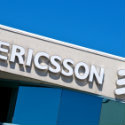
Also in today's EMEA regional roundup: Openreach reins in Gfast rollout; Fitch returns Nokia to investment-grade status; Huawei powers Fastweb's WiFi; UK smart meter program in crisis.
Sweden's Ericsson AB (Nasdaq: ERIC) is upping its investment in 5G in the US, its largest market, with a series of initiatives that it hopes will help accelerate deployments of the much-vaunted technology. In concrete terms, this means, among other things, the creation of a new software development center with a "baseband focus" in 2018, ultimately employing more than 200 software engineers. As part of its 5G splurge, Ericsson is also pumping more money into the related fields of artificial intelligence and automation, employing around 100 specialists in these two areas by the end of 2018. And to help bring 5G-friendly products to the US market more quickly, the vendor is to begin manufacturing such products -- 5G radios, for example -- in the US in the fourth quarter of 2018, initially working with a local production partner. (See Ericsson Increases Investment in 5G, AI & Automation in the US.)
Openreach , BT's quasi-autonomous network access unit, is to rein in its Gfast rollout, cutting back the number of premises to be reached by the copper-boosting technology to "more than 5.5 million," from an initial target of around 10 million. The apparent change of strategy comes in the wake of the UK government's backing of a fiber-based broadband future, as set out in its Future Telecoms Infrastructure Review published last month. If what the operator sees as the right investment conditions are in place, BT Group plc (NYSE: BT; London: BTA) now hopes to extend all-fiber services to 10 million premises by the mid-2020s. For more details, see this story on our sister site, Broadband World News. (See also Eurobites: UK Fine-Tunes Its Full-Fiber Future.)
Meanwhile, BT has said that it is creating more than 1,000 permanent customer service jobs in the UK and Ireland across its Consumer division. Some of these jobs will in effect be "conversions" of roles that were previously being filled on a temporary contract basis: The operator now says that it will no longer use contractors for these positions, so any customer advisors currently working on temporary contracts will now be given proper terms and conditions and permanent roles.
Fitch Ratings Ltd. has upgraded Nokia Corp. (NYSE: NOK)'s Long-Term Issuer Default Rating and senior unsecured rating from "BB+" to "BBB-", a move which, says Nokia, marks its return to "investment grade" status. Which means it's no longer 'junk.' According to Fitch, Nokia's credit profile "is underpinned by a strong position in the telecommunications equipment market, a robust balance sheet with a net cash position of EUR2.14 billion (1H18), an end-to-end product portfolio and recurring patent revenue…"
Fastweb SpA (Milan: FWB), the Italian broadband provider owned by Swisscom AG (NYSE: SCM), has chosen China's Huawei Technologies Co. Ltd to provide the guts of its city WiFi hotspot offering, using the vendor's CloudCampus software.
Citizens Advice, the UK consumer rights organization, has called for the deadline set for the country's government-promoted smart meter program to be extended for another three years. As the BBC reports, the smart meter program, the aim of which was to have up to 53 million smart meters installed in 30 million homes and businesses by the end of 2020, is not going well, with many consumers unconvinced by the potential benefits of having a smart meter and those that have had one installed finding that it sometimes doesn't work properly if they switch power providers. (Full disclosure: Eurobites Towers has had a smart meter installed and after two months of use our principal finding is that it makes us feel a bit guilty about putting the kettle on. Is that progress? Comments on the message board, please.)
— Paul Rainford, Assistant Editor, Europe, Light Reading
About the Author(s)
You May Also Like











